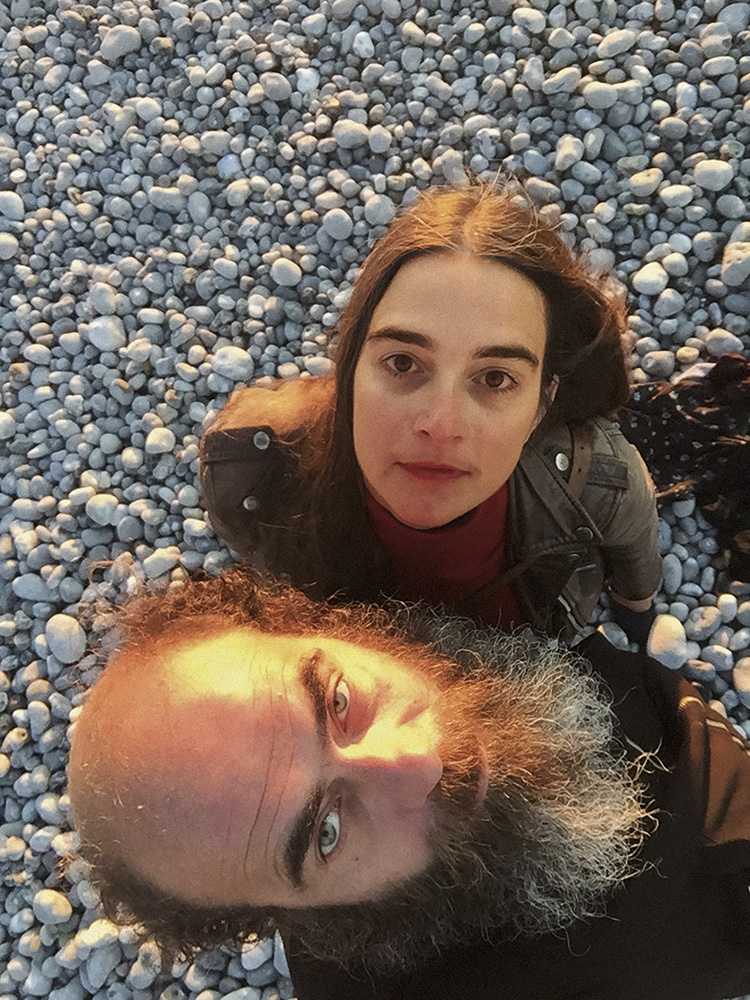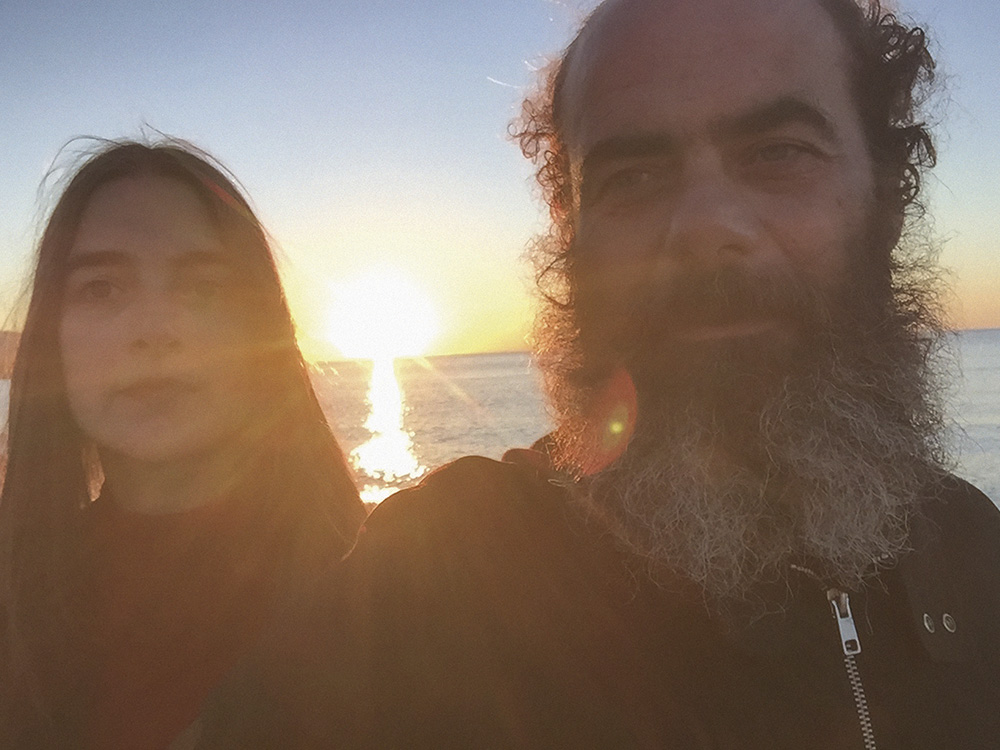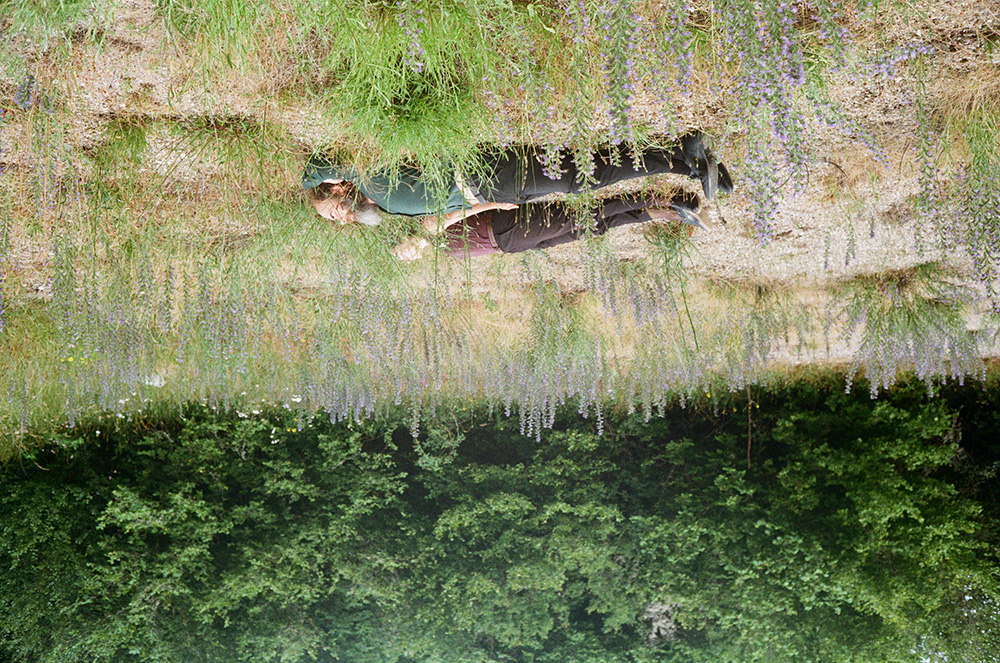
CATALINA MATORRAL
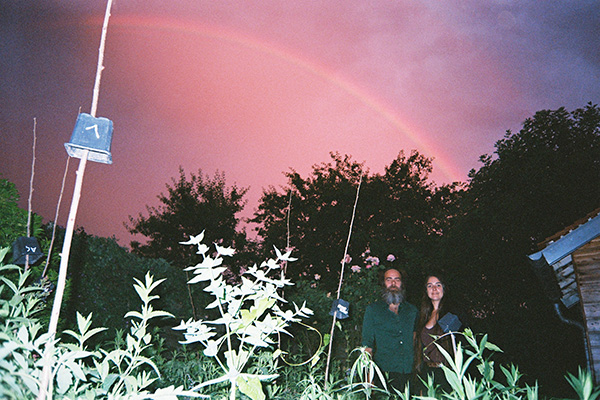

Présentation
 Catalina Matorral is a comet. Catalina Matorral is a duo; Marion Cousin and Borja Flames make up its double head and four hands. At the beginning of the 2010s, they were called June et Jim — we remember some disturbing EPs they released before joining the label Le Saule (a small, chivalrous table whose holy grail is everything unheard, where folk-singing is avant-garde and avant-garde is synonymous with enchantment). Their first LP, Les Forts, evoked the songwriting of indie-hobos inspired by Latin America, contributing to the rejuvenation of French music. Noche Primera went even further by vibrating in various reveries, from African songs to Spanish medieval music, from Purcell to Bach. It blew hot and cold under a psychedelic candlelight. The record in question has been maturing for seven years in eccentric barrels, marinating in the shadow of Marion and Borja's respective evolutions, nourished by their individual obsessions. Marion fixated on songs and dances from the Iberian Peninsula. This gave birth to a minimalistic, organic record featuring the cellist Gaspar Claus, where humming trembles among frowning pizzicati, thin drones and throbbing arpeggios. She went on to release another album with the electronic duo Kaumwald, an oeuvre at the crossroads of vernacular narratives and experimental music, simmering everyday songs in an insolently modern production. Meanwhile, Borja leaned towards an intellectual, synthetic and furious pop; made two albums to awaken the dead, somewhere between Moondog and Battiato. They are two conceptual, electrifying and dance-inducing recordings for the phosphorescent masses.
Catalina Matorral is a comet. Catalina Matorral is a duo; Marion Cousin and Borja Flames make up its double head and four hands. At the beginning of the 2010s, they were called June et Jim — we remember some disturbing EPs they released before joining the label Le Saule (a small, chivalrous table whose holy grail is everything unheard, where folk-singing is avant-garde and avant-garde is synonymous with enchantment). Their first LP, Les Forts, evoked the songwriting of indie-hobos inspired by Latin America, contributing to the rejuvenation of French music. Noche Primera went even further by vibrating in various reveries, from African songs to Spanish medieval music, from Purcell to Bach. It blew hot and cold under a psychedelic candlelight. The record in question has been maturing for seven years in eccentric barrels, marinating in the shadow of Marion and Borja's respective evolutions, nourished by their individual obsessions. Marion fixated on songs and dances from the Iberian Peninsula. This gave birth to a minimalistic, organic record featuring the cellist Gaspar Claus, where humming trembles among frowning pizzicati, thin drones and throbbing arpeggios. She went on to release another album with the electronic duo Kaumwald, an oeuvre at the crossroads of vernacular narratives and experimental music, simmering everyday songs in an insolently modern production. Meanwhile, Borja leaned towards an intellectual, synthetic and furious pop; made two albums to awaken the dead, somewhere between Moondog and Battiato. They are two conceptual, electrifying and dance-inducing recordings for the phosphorescent masses.
Catalina Matorral is the aberrant, delightful by-product of all of the above. A grand, serial poem where everything is interconnected — songs, texts, music and obsessions — in a vast, skillfully crafted cycle. It is a sound theater where androids dream of electric sheep, a spellbook where medieval illuminations sit next to printed circuit boards, where each sentence is an indecipherable secret, a Jivaro poem, an incantation to lift enchantments. The slightest sound seems to be animated by an autonomous thought. To say that the listener is immediately captivated by this multidimensional voice resembling a voodoo vocoder rolling on a conveyor belt made of artificial basses would be an understatement. Drums knock and crackle in an orchestra perched high on glitches, surrounded by an entirely new landscape composed of brass and convulsions, somewhere between the rural bocage of Normandie and the International Space Station. The result is both eventful and very soft: chimeric narration, heady verses, pop fragments, horizontal synths, distorted technologies. One would think they’re listening to an opera composed by Robert Ashley or Laurie Anderson, based on an improbable libretto written by anthropologist Jeanne Favret-Saada, and performed by holograms of Brigitte Fontaine and Areski — who unexpectedly regurgitate bits of blunt folk, binary jazz, baroque songs and ghostly madrigals. Micro-events, great enchantments.
This record was written and recorded by two people, tinkering feverishly for seven years. It was blessed with the furtive appearances of faithful friends: Gaspar Claus played the cello; Igor Estrabol the clarinet, trumpet and flugelhorn; Renaud Cousin the drums; Ernest Bergez played the violin and whimsically mixed the tracks like a bonesetter-scientist.
At the crossroads of worlds, eras and moods, Catalina Matorral invents a curiously rural science fiction that confounds poetry with white magic and puts French music in a permanent tension between the cosmos and manure.
It must be noted that it was the enthusiasm of Hisham Mayet, founder of the mythical Sublime Frequencies and a great collector of music without borders, that permitted the promising new label Via Parigi to release this album, a dizzying asteroid shaped like both a nursery rhyme and a black hole.
Sing Sing
.
Catalina Matorral est une comète. Catalina Matorral est un duo. Marion Cousin, Borja Flames en constituent la double tête et les quatre mains. Au début des années 2010 on les appelait June et Jim, on s’en souvient. Quelques EP troublants avant de rejoindre le label Le Saule (cette petite table chevaleresque où l’inouï tient lieu de graal, où la chanson populaire est une avant-garde et l’avant-garde une féérie). Un premier LP, Les Forts évoquait le songwriting de quelques hobos-indies claudiquants piqués d’Amérique latine et contribuait à émanciper la chanson française de ses vieilles lunes. Noche Primera allait plus loin et s’ébrouait en transes diverses et sur des modes hétérogènes, des chants africains à la musique médiévale espagnole, de Purcell à Bach. Dans un psychédélisme à la bougie, il soufflait le chaud, il soufflait le froid. Le disque qui nous occupe aujourd’hui a mûri pendant sept ans sur un arbre tordu, dans l’ombre des mues respectives de Marion et de Borja, nourri et contaminé par leurs obsessions grandissantes respectives. Obsession de la première pour les chants et danses de la péninsule ibérique (un disque nu et naturel avec le violoncelliste Gaspar Claus où le fredon tremble parmi pizzicati froncés, bourdons maigres et arpèges lancinants, un autre en compagnie du duo d’électroniciens Kaumwald, à la croisée des récits vernaculaires et de la musique expérimentale, ébouillantant des chants très quotidiens dans une production insolemment moderne). Obsession du second pour la pop savante, synthétique et furibarde (deux albums d’imprécations en éboulis, entre Moondog et Battiato, pour aller vite, deux disques de messe phosphorescente conceptuels, épidermiques et dansants).
De tout cela, Catalina Matorral est l’aberrant et réjouissant précipité. Un grand poème sériel où tout communique avec tout d’une chanson à l’autre, textes, musiques et obsessions, en un vaste cycle savamment construit. Un théâtre sonore où les androïdes rêvent de moutons électriques, un grimoire où les enluminures à main levée voisinent avec les circuits imprimés et où chaque phrase tient de la confidence indéchiffrable, du poème jivaro, de la formule à désorceler. Où le moindre son semble doué d’une pensée autonome. C’est peu dire qu’on est captivé, dès l’entame, par ce chant mixte qui va l’amble dans un vocodeur vaudou, sur un tapis roulant de basses artificielles. Les percussions cognent ou crépitent à l’orchestre au milieu des glitchs dans un paysage très inédit fait d’airain et de convulsions, quelque part entre le bocage normand et la base aérospatiale. C’est à la fois très mouvementé et très doux. La narration lunaire, les couplets entêtants et fragments pop, les synthés horizontaux, les technologies détournées : on croit parfois entendre un opéra composé par Robert Ashley ou Laurie Anderson sur un improbable livret de l’anthropologue Jeanne Favret-Saada, avec Brigitte Fontaine et Areski en hologrammes et régurgitant par surprise des bouts de folk contondant, de jazz binaire, de chanson baroque et de madrigaux fantômes. Micro-évènements, grands enchantements.
Ce disque a été écrit et enregistré à deux, à tâtons n’interdisant pas la fièvre, en sept années comme on a dit, puis illuminé à terme par les furtives apparitions d’amis fidèles : Gaspar Claus au violoncelle, Igor Estrabol à la clarinette, à la trompette et au bugle, Renaud Cousin à la batterie, Ernest Bergez au violon et au mix coloriste de rebouteux-laborantin.
À la croisée des mondes, des époques et des humeurs, Catalina Matorral invente littéralement et en musique une science-fiction curieusement rurale, confond poésie et magie blanche, met la chanson française en tension permanente entre le cosmos et le fumier.

Discographie
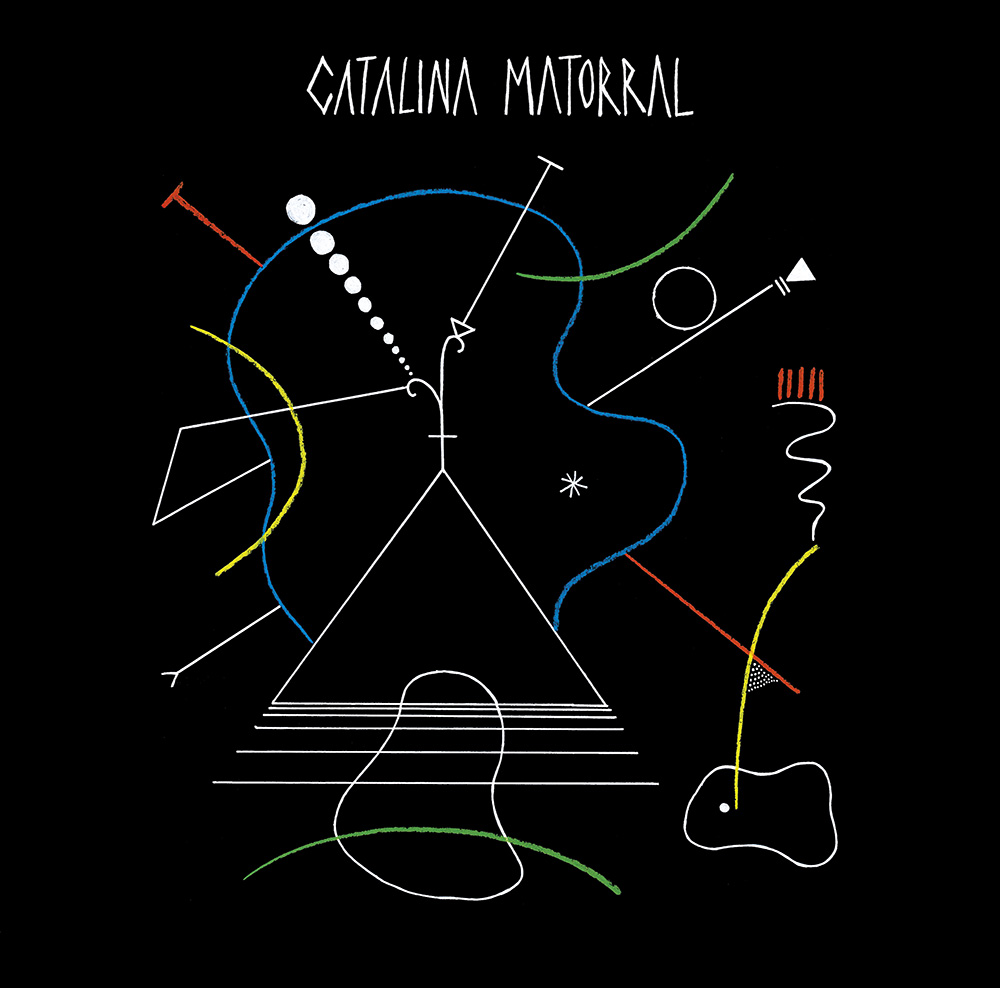 Catalina Matorral
Catalina Matorral24 novembre 2021 | LP | CD | K7 | NUMÉRIQUE
Un grand poème sériel où tout communique avec tout d’une chanson à l’autre, textes, musiques et obsessions, en un vaste cycle savamment construit. Un théâtre sonore où les androïdes rêvent de moutons électriques, un grimoire où les enluminures à main levée voisinent avec les circuits imprimés et où chaque phrase tient de la confidence indéchiffrable, du poème jivaro, de la formule à désorceler.
"Délectable premier album distillant un genre de néo-folk subtilement mutant et diablement entêtant" POLITIS
"Ballades détraquées, pop troublée par des présences fantômes" RCF
Le Saule / Via Parigi



AGENDA
Mercredi 4 février | CONCERT
Léonore Boulanger trio
+ Louise Chennevière
+ Ned Collette
Soirée Il fait trop chaud
Péniche Adélaïde | Paris (19è)
Samedi 16 mai | CONCERT
Aurélien Merle solo
Le Maquis de Vareilles | Vareilles (89)
Samedi 23 mai | CONCERT
Aurélien Merle
& la Roda Marcel Samba
Le Maquis de Vareilles | Vareilles (89)
Samedi 30 mai | CONCERT
Aurélien Merle solo
Le PIC | Ivry (94)
Samedi 13 juin | CONCERT
Aurélien Merle
& la Roda Marcel Samba
La Classe | Saint Hilaire du Risle (61)

Vidéos
Aurélien Merle
et la roda Marcel Samba3 chansons de Chico Buarque

Vin de Sprite feat. Autotest 80.10
Trébuche sur un chien

Borja Flames
Cosmogonie Pop (série "Echos")

Bégayer
Fable Bègue / Lycose Battue / Seuil d'un bourg / Prèche Bègue4 extraits de l'album "Évohè Bègue"

Philippe Crab
FocalisateurExtrait de l'album "Coucouville"



